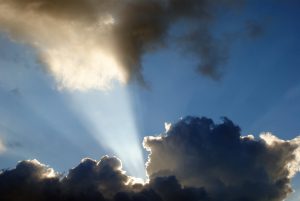Sometimes a patent falsehood is repeated so often that it needs to be openly rebutted, in spite of its inanity. The title of this post is one such falsehood and is adapted from a blog discussion I had about nature and religion.
The full quote from my interlocutor ran like this:
I think that too often people confuse dogma/doctrine with spirituality….dogma can never compete with true spirituality and indeed is most often the killer of it.
I called the guy out on this bald-faced assertion by quoting Chesterton: “There are two kinds of people in this world: those who believe in dogma and know it, and those who believe dogma and don’t know it.”
This man has a dogma, and the dogma is that other dogmas, ones he rejects, kill “true spirituality.” So his statement is self-defeating, like the saying that “there are no true generalizations” (except of course, the generalization that there are no true generalizations!).
But let’s step back and understand the intention behind his claim. The idea is that “true spirituality” is one that comes from inside a person, perhaps even something they uniquely have imagined or come to believe, rather than a belief that some religious institution–perhaps the Catholic Church–teaches is true.
Religion is bad; spirituality is good. I heard the same thing the other night on a radio station that plays Delilah’s love songs. Delilah, in all her pop culture wisdom, said something to the effect of: “spirituality unites; religion divides.”
But in fact why should it be more plausible that something I imagined in my own mind is true while something taught by the Catholic Church is false? Have I been given special powers to discern the truth of existence, over and against all others? Why should I believe that I am gifted in such a way so as to trust my own imaginations over a religious institutions claims?
An old teacher of mine, a man I greatly respect, once told me that he believed that when we die, our spirits will all go up into the ether and kind of meld and combine in a big cosmic soup. Rather too bluntly, I asked him: “What makes you think that this idea of yours is more plausible than what Christianity claims will happen when we die?” He was clearly taken aback by my candor and fumbled around for how to respond. I felt bad that I came across rudely, but the point I made still stands.
Dogma is not the killer of true spirituality. It is the protector of it. God has revealed truth to us and made it possible for all men–not just a few gifted ones–to know this truth. He has done this by sending His Son, Jesus Christ, and subsequently through the Church that Christ founded, which subsists in the Catholic Church. Historical evidence and philosophical arguments all support these beliefs, though they cannot demonstrate it through reason alone.
The Catholic Church elevates a doctrine to the level of dogma when it is needed. She draws a line in the sand that says: “Such-and-such is true, or at least, a particular falsehood is not true.” By doing so the faithful are safeguarded from falling into error. Note that there is still tremendous freedom of belief within the bounds of dogma: our Christian faith is mysterious and isn’t defined down to every jot and tittle. But we know that, whatever we believe, we should stay within these bounds set by Christ through His Church.
So while dogma has a negative connotation to most people, one of irrational, fundamentalistic adherence to a crazy religious belief, real dogma is anything but that. Real dogma is supported by reason, even though it goes beyond it.
Hopefully this little mental exploration will be of help to you the next time that you run into someone who denigrates dogma and elevates their own personal spirituality.

